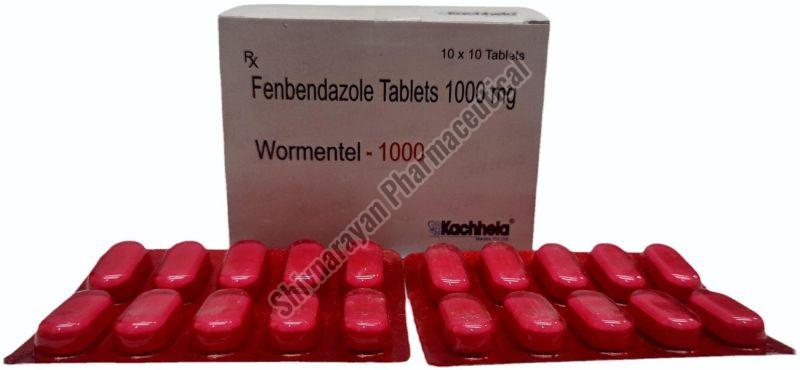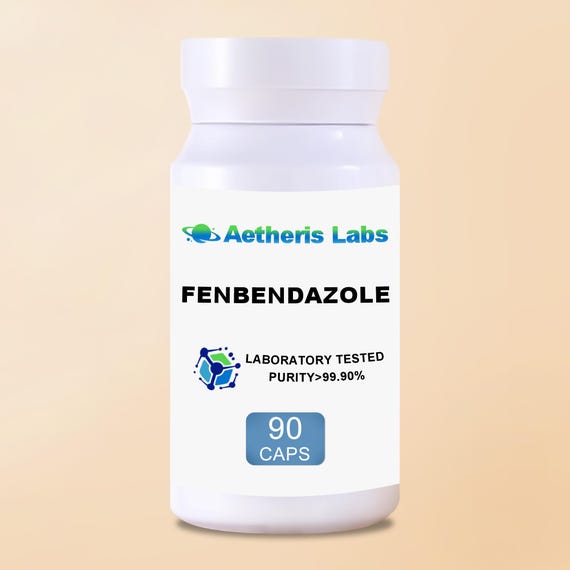fenbendazole capsules vs Other Dewormers: A Clear Comparison
Exploring the Devices Behind Fenbendazole and Its Influence On Animal Health
Fenbendazole is a widely utilized anthelmintic understood for its performance against numerous parasites. Its key mechanism entails the restraint of microtubule development, which interrupts important procedures in these pathogens. Beyond its antiparasitic properties, fenbendazole also appears to enhance immune responses and possesses anti-inflammatory benefits. Comprehending these complex effects can disclose new applications for pet wellness. Inquiries continue to be regarding its full capacity and safety account.
The Pharmacokinetics of Fenbendazole
The pharmacokinetics of fenbendazole, a widely made use of anthelmintic in veterinary medication, involves the research study of its absorption, circulation, metabolism, and discharging within animal systems. After administration, fenbendazole is swiftly absorbed from the intestinal system, with peak plasma concentrations occurring within hours. Its distribution is influenced by aspects such as tissue binding and lipid solubility, allowing it to pass through various tissues successfully. The medication goes through extensive metabolic process largely in the liver, where it is converted right into active and inactive metabolites. These metabolites play a function in the medication's general effectiveness and security profile. Discharging happens mostly through feces, with a smaller sized proportion removed through urine. The half-life of fenbendazole differs among species, which affects dosing routines. Comprehending these pharmacokinetic buildings is vital for enhancing its therapeutic usage and making sure reliable parasite control in vet methods.
Devices of Activity Versus Bloodsuckers
Fenbendazole applies its antiparasitic effects mainly with the restraint of microtubule development in bloodsuckers. This disruption affects their structural stability and mobile functions, bring about impaired power metabolic process. Because of this, the medicine successfully compromises the survival and reproduction of numerous parasitic organisms.
Restraint of Microtubule Development
Restraint of microtubule formation represents an important system through which certain anthelmintic agents, consisting of fenbendazole, apply their impacts on parasites. Fenbendazole binds to tubulin, a protein that creates microtubules, interfering with the polymerization procedure necessary for microtubule setting up. This interruption harms necessary mobile functions, including mitosis, intracellular transportation, and structural honesty. As microtubules play a vital role in preserving the shape and function of parasitical cells, their restraint results in cell cycle apprehension and eventual fatality of the parasite. This mechanism is especially efficient against nematodes, as their reliance on microtubules for wheelchair and nutrient absorption makes them vulnerable to fenbendazole. As a result, the restraint of microtubule development is an important element of fenbendazole's restorative efficiency in vet medicine.
Interruption of Basal Metabolism
Disrupting power metabolic process is an additional vital device through which fenbendazole targets parasitical microorganisms. This anthelmintic changes the energy production pathways within bloodsuckers, primarily influencing their capability to generate adenosine triphosphate (ATP) By preventing glucose uptake and interrupting mitochondrial function, fenbendazole limitations the power resources vital for the survival and recreation of these organisms. As an outcome, parasites end up being significantly prone to ecological anxieties and immune reactions. In addition, the interference in energy metabolic rate not only impacts the parasites directly however also reduces their ability to take in nutrients, better harming their development. Overall, the disruption of basal metabolism stands for a basic facet of fenbendazole's effectiveness against different parasitical infections, contributing greatly to boosted animal health outcomes
Prospective Adverse Effects and Safety Profile
The possible adverse effects and safety account of fenbendazole warrant mindful consideration, specifically in veterinary applications. While usually considered secure, some pets might experience unfavorable responses, consisting of intestinal disturbances such as vomiting and looseness of the bowels. Additionally, neurological symptoms, although uncommon, have actually been reported in delicate people, highlighting the demand for tracking throughout treatment.

Fenbendazole's security in various types, including pet dogs and felines, has actually been documented, yet dose and period of treatment need to be carefully handled to reduce threats. Expecting or lactating animals may also call for special attention, as the impacts on establishing fetuses or nursing spawn are not completely comprehended.
Normal veterinary examinations can aid mitigate prospective side effects and guarantee the medicine is administered suitably. As a result, while fenbendazole is an effective anthelmintic representative, caution concerning its negative effects is crucial for preserving pet health and wellness.

Fenbendazole's Influence on Immune Feature
Fenbendazole has been noted for its prospective to regulate body immune system responses in pets. Its anti-inflammatory homes might add to enhanced immune function, offering a dual benefit in managing health and wellness (222 mg). Comprehending these impacts is necessary for examining fenbendazole's role in vet medicine
Body Immune System Modulation

Anti-inflammatory Qualities
Anti-inflammatory impacts stand for a significant facet of fenbendazole's influence on immune function. Research study suggests that fenbendazole might decrease the manufacturing of pro-inflammatory cytokines, which are essential in moderating inflammatory feedbacks. By modulating these cytokines, fenbendazole can potentially minimize inflammation-related problems in pets. This anti-inflammatory activity not just aids in managing signs and symptoms related to numerous conditions but also improves general body immune system efficiency. Furthermore, its ability to advertise a balanced immune action assists avoid excessive inflammatory damages, which can lead to persistent health concerns. Fenbendazole's role in inflammation management emphasizes its significance in vet medicine, supplying a twin benefit of antiparasitic activity and immune system assistance for animal wellness.
Applications Beyond Typical Parasitic Infections
While mainly acknowledged for its efficiency against different parasitical infections, fenbendazole has gathered focus for possible applications past this standard range. Recent research studies suggest that fenbendazole might have helpful impacts on cellular health and immune feedback, making it an appealing prospect for managing various other health problems in pets. For instance, its reported anti-inflammatory properties might offer alleviation for animals struggling with persistent inflammatory diseases. In addition, some research study shows that fenbendazole could play a function in sustaining the overall health of pets by boosting nutrition absorption and stomach wellness. Its possible as an adjunct treatment in cancer therapy has actually stimulated rate of interest, as initial searchings for recommend it might hinder lump cell development in particular contexts. These diverse applications highlight fenbendazole's adaptability, urging more exploration right into its complex benefits for pet health and wellness past its traditional usage as a deworming representative.
Future Research Study Directions and Effects for Animal Health
The exploration of fenbendazole's prospective applications has actually opened up new opportunities for research study targeted at boosting pet health. Future researches can concentrate on its effectiveness against a more comprehensive series of microorganisms, consisting of bacteria and infections, thus expanding its role in vet medicine. The effects of fenbendazole's systems, such as its influence on immune inflection, warrant additionally examination to comprehend how it can reinforce total health and wellness in various species.
Furthermore, study might explore optimal dosages and solutions to make best use of effectiveness while lessening prospective side impacts. Checking out fenbendazole's collaborating results with various other medications might bring about extra reliable treatment protocols. Longitudinal researches evaluating long-lasting outcomes in pets treated with fenbendazole can give useful insights right into its safety and security and effectiveness. In general, the ongoing exploration of fenbendazole uses promising possibility to boost animal health, demanding a joint approach amongst scientists, veterinarians, and pharmaceutical developers to assist in improvements in this field.
Regularly Asked Inquiries
Can Fenbendazole Be Made Use Of in Livestock for Parasite Avoidance?
The inquiry of whether fenbendazole can be utilized in livestock for bloodsucker avoidance matters, as producers look for effective therapies (fenbendazole). Research study indicates it might provide benefits, yet proper standards and veterinary guidance are crucial for secure usage
What Is the Advised Dosage of Fenbendazole for Various Animals?

Are There Any Kind Of Recognized Medicine Interactions With Fenbendazole?
Present understanding shows that fenbendazole might communicate with particular medications, possibly influencing their efficiency or metabolism. Vet experts recommend talking to a veterinarian to examine specific pet situations and figure out any kind of feasible interactions before administration.
Just How Does Fenbendazole Contrast to Various Other Antiparasitic Medications?
Fenbendazole is typically compared to various other antiparasitic drugs based on effectiveness, range of task, and safety profiles. It is preferred for its effectiveness versus a wide variety of bloodsuckers while normally showing marginal negative effects in animals.
Is Fenbendazole Effective Against Viral or Microbial Infections in Animals?
The effectiveness of fenbendazole against viral or microbial infections in animals continues to be unproven. Research study mostly concentrates on its antiparasitic residential or commercial properties, with minimal proof sustaining any type of function in treating non-parasitic infections in vet medicine.